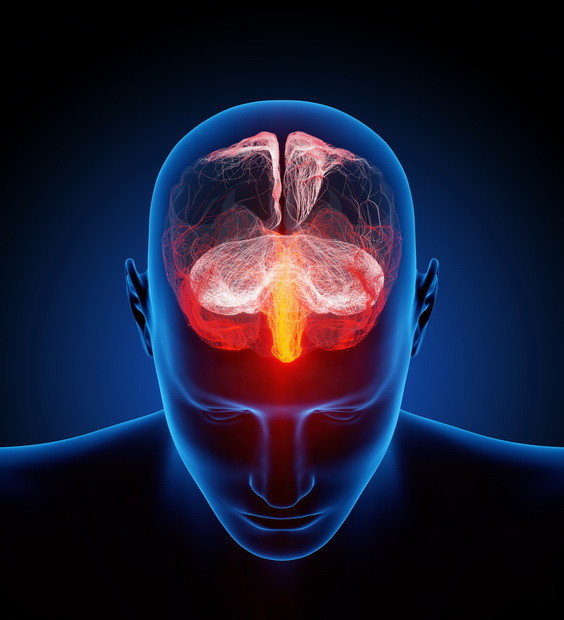Our Eason & Tambornini, brain injury attorneys regularly handle complex cases that involve diffuse axonal injury and other traumatic brain injuries following a truck accident. We understand that life-long brain injuries can force you to adjust to life with cognitive impairment. If you believe that you are a victim of a traumatic brain injury due to another person’s negligence, contact one of our Eason $ Tambornini brain injury attorneys now. We can help you increase your chances of recovering damages for medical bills, lost wages, reduced earning potential, and even pain and suffering.
Learn more about our Sacramento Truck Accident Attorney Services.
What is a diffuse axonal injury?
Diffuse axonal injury (“DAI”) is a type of traumatic brain injury (“TBI”) that happens when brain tissues slide over each other due to the combination of acceleration, deceleration, and contact forces during a truck accident. Unlike blood clots and bleeding in the brain, DAI affects individual nerve fibers. This brain injury causes micro-tears and swelling of the nerves, thereby disrupting the communication between nerve cells. This disruption leads to the death of nerve cells and swelling of the brain. When the brain swells, pressure builds up, and the structures in the skull can squeeze parts of the brain. When this happens, the blood flow to the brain can be cut off, which ultimately leads to brain death. Depending on the part of the brain affected, DAI can cause impaired physical mobility, speech problems, and coma or vegetative state. If you suspect DAI after a truck accident, seek medical care immediately.
(“DAI”) is a type of traumatic brain injury (“TBI”) that happens when brain tissues slide over each other due to the combination of acceleration, deceleration, and contact forces during a truck accident. Unlike blood clots and bleeding in the brain, DAI affects individual nerve fibers. This brain injury causes micro-tears and swelling of the nerves, thereby disrupting the communication between nerve cells. This disruption leads to the death of nerve cells and swelling of the brain. When the brain swells, pressure builds up, and the structures in the skull can squeeze parts of the brain. When this happens, the blood flow to the brain can be cut off, which ultimately leads to brain death. Depending on the part of the brain affected, DAI can cause impaired physical mobility, speech problems, and coma or vegetative state. If you suspect DAI after a truck accident, seek medical care immediately.
What is the prognosis of diffuse axonal injury?
Most patients with severe DAI from a truck accident, if they recover consciousness, suffer from short-term or long-term memory loss as well as other cognitive impairments. Some of them may not remember memories, while some cannot create new memories. Unfortunately, 90% of patients with severe DAI remain in a persistent vegetative state indefinitely, which can last for decades or even a lifetime. Of the 10% who regain consciousness, most of them will suffer from lifelong functional deficits. Although a small percentage of patients may attain near-normal neurological function, they will still be forced to adjust to life with mild cognitive impairment. Since patients with DAI show a typical or near-normal CT scan result following a truck accident, it is of utmost importance to talk to your doctor regarding magnetic resonance imaging (MRI) to come up with an accurate diagnosis that can support your compensation claim.
What is the treatment for diffuse axonal injury?
Currently, there are no known specific drug therapies for DAI following a truck accident. Most doctors focus on stabilizing the patient and controlling the pressure within the skull. Drug therapy at this time is targeted at neuropsychiatric and neurobehavioral conditions related to DAI. Some conditions, such as anxiety, depression, agitation, impulsive behavior, and mood changes, may respond to specific medications. However, the root cause of these psychiatric symptoms can’t be treated. Additionally, the symptoms of DAI often change over time. That’s why frequent reassessment and follow-up should be performed to determine the severity of the condition and the best course of action.
What can you do?
Since diffuse axonal injury is an incurable brain injury, it can cause more significant problems later on and force you to adjust to life with cognitive impairment. If you find yourself concerned about a diffuse axonal injury or other traumatic brain injuries following a truck accident, consult with one of our Eason & Tambornini truck accident attorneys in Sacramento to ensure that you get the maximum compensation from all possible compensation sources. Our brain injury lawyers are just a call away to assist you in your pursuit of justice.
The information provided on this blog is for informational purposes only and not a substitute for professional medical advice, diagnosis, or treatment. Always seek the advice of your physician or other qualified health provider with any questions you may have regarding a medical condition. Never disregard professional medical advice or delay in seeking it because of something you have read on this blog.
